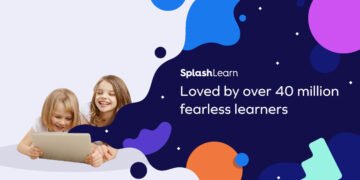Students all across the world will benefit from Labster's cutting-edge, award-winning
approach to educating them about science. In virtual laboratories, students may do
laboratory experiments online and investigate abstract topics and complex theories
without having to enter a real-world scientific lab.
Open-ended research and gamification components such as immersive 3D worlds,
stories about science and real-world concerns are mixed in the company's laboratories
to excite students' inherent curiosity and emphasize the link between science and real-
world challenges. Harvard, MIT, Stanford, Exeter University and the ETH Zurich are
among its clients.
Why People Use Labster?
Learning management systems (LMSs) like Canvas and Blackboard are integrated with
Labster, allowing teachers to spend less time grading questions and more time
monitoring student progress.
All students may benefit from high-quality scientific instruction because to Labster's
multilingual simulations, varied on-screen characters, and accessibility features for
students with hearing or vision impairments.
Meet the People Behind Labster’s Success
Labster was founded by Michael Bodekaer Jensen and Mads Tvillinggaard Bonde. "A
self-taught geek with a large capital G," Michael describes himself as an avid gamer and
tech enthusiast. While working at an Internet cafe, he met Mads, a fellow employee who
was also interested in gaming. Game obsessions like Counter-Strike and Starcraft II
brought them together.
While running the Biotechnology lab at Copenhagen University, Mads noticed that
students were having a hard time keeping focused and turning up on time. Michael was
also working on a Ph.D. in Learning Sciences at the same time, but he had to quit when
Labster began to take off like a rocket.
Mads and Michael were able to identify the changes that needed to be made in order to
successfully teach science. It was determined that the way science is taught will be
transformed as a result of their efforts. Additionally, Mads and Michael were moved by
the idea of using aircraft simulators to instruct students in science. As a result of this,
Labster was born.
Labster Funding Success
Series B investment for Labster has been raised to the tune of $21 million. Owl
Ventures, Balderton Capital, Northzone, and Swisscom Ventures all participated in the
funding round. Previous investors Nordic Makers, EduCapital and Entangled Group
have contributed to the company's total of $35 million in funding.
Labster is a virtual reality (VR) platform that allows students to participate with lab
experiments in a variety of scientific disciplines, including biology, chemistry, physics,
engineering, and general science. 70 virtual laboratories are available to help students
get more involved in STEM studies while also boosting their learning results and
retention rates.
In addition, Labster has received $103.5 million in fundraising in five stages. On
February 10, 2021, a Series C round of fundraising was completed for the company.
Twelve investors have put money into the business. Most recently, the company
received investment from Educapital and GGV Capital. On October 14, 2021, Labster
bought UbiSim.
Major Competitors
● Attensi – http://www.attensi.com/
● JihSpace – https://www.jig.space/
● Knowledgeone – https://knowledgeone.ca/
Useful Links
Resources
● https://www.labster.com/
● https://www.linkedin.com/company/labster
● https://www.crunchbase.com/organization/labster/technology
● https://canvashelp.fullerton.edu/m/Labster/l/1333415-what-is-labster
● https://golden.com/wiki/Labster-XKED53Y
● https://pitchbook.com/profiles/company/57711-79#investors
● https://techcrunch.com/2019/04/25/labster-series-b/
● https://craft.co/labster/competitors





























